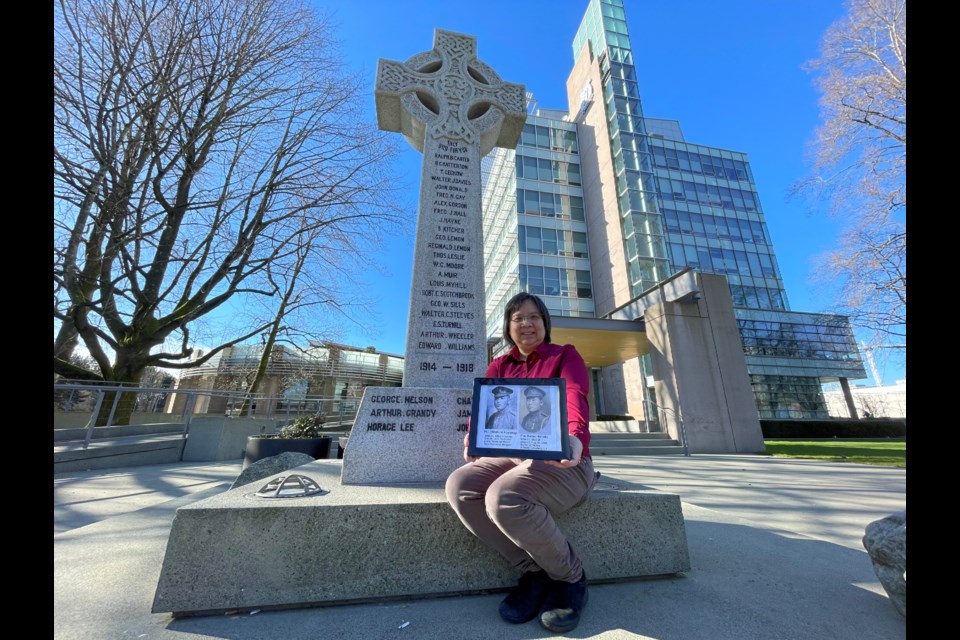Two more names will be added to the cenotaph in Richmond to commemorate Japanese Canadian soldiers who fought in the First World War.
The names of Pte. Hikotaro Koyanagi and Pte. Kazuo Harada are expected to be placed onto the cenotaph, which stands in front of Richmond City Hall on No. 3 Road, around May.
But the process of getting here was not easy.
Richmond resident Debbie Jiang, who brought forward the idea to city council, said she realized Japanese-Canadian soldiers' names were missing from the Richmond cenotaph.
After reading military personnel records and researching the history of Koyanagi and Harada , Jiang discovered they were actually from Richmond.
“I wanted to bring their names back to where they originally resided, which is here in Richmond, so that they can be remembered properly," said Jiang.
"The least we can do is honour their memory. Including them on their home town’s cenotaph accomplishes that and teaches Richmond residents about the cultural mix that Richmond was back in 1914 and still is today."
She told the Richmond News that at the time the cenotaph in Richmond was erected, Japanese Canadians were not allowed to vote and “were seen as a threat to the white population.”
“The names of Japanese Canadians from Sea Island and Steveston were omitted from the cenotaph by a prejudiced society,” said Jiang.
Aside from the memorial in Stanley Park, there are only two other cenotaphs that commemorate fallen Japanese Canadian soldiers in Canada, she added.
Jiang explained that Koyanagi and Harada were among the first wave of Japanese families who immigrated from Fukuoka, Japan, and moved to Richmond in the 19th century as fishermen.
Their names were among the list of 200 volunteers from British Columbia who travelled to Alberta to enlist during the First World War because B.C. would not accept them.
Jiang added that Alberta battalions were in dire need of replacement troops on the Western Front in 1916 and, hence, welcomed the Japanese-Canadian soldiers.
When soldiers filled out their attestation papers – personal information forms for volunteers of the Canadian Expeditionary Force – they wrote Alberta as their address as that was where they were staying temporarily even though they were all from B.C., explained Jiang.
For the past five years, Jiang has looked through archives of data, next of kin cards, medal cards and pay ledgers to research the history and where these soldiers were from. Previously, she was the national coordinator of the Lest We Forget project in Ottawa.
Konayagi and Harada’s paperwork stated they were fishermen by profession and Konayagi’s marriage certificate gives the “strongest evidence he worked and lived in Eburne, and Terra Nova listed as his residence.”
Jiang also discovered 14 other Japanese Canadian soldier names that may have a connection to Eburne, an area located on Sea Island and South Vancouver, or Steveston but said it may take a little longer to clarify.
“I think it’s great to just start with these two and the best part is they plan to add the names around Asian Heritage Month, which could not be any better timing,” said Jiang.
“We want to honour and recognize them for the contribution they made to Canada’s war effort, albeit 103 years late. It’s time to bring them home.”
Got an opinion on this story or any others in Richmond? Send us a letter or email your thoughts or story tips to [email protected].



